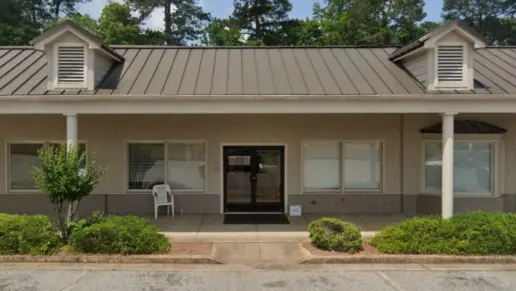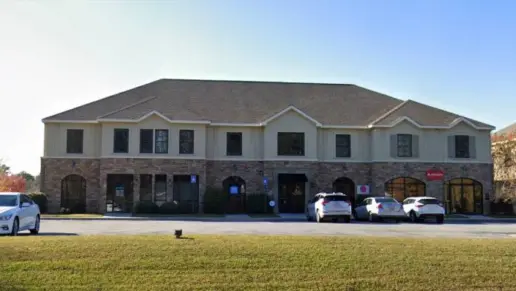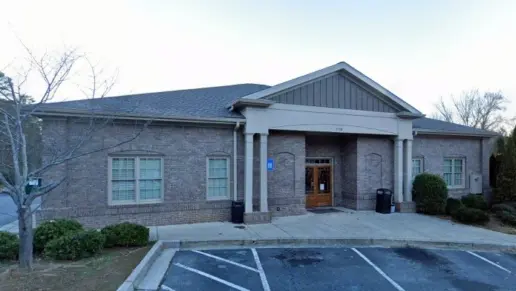About Mary Hall Freedom House
Mary Hall Freedom House, founded in 1996, is situated in Atlanta, Georgia, and is a drug rehab center specializing in treating opioid addiction, alcoholism, and dual diagnosis. This addiction treatment center provides housing and addiction treatment services to women and children and has served more than 18,000 people since it was founded.
Mary Hall Freedom House only treats women battling drug and alcohol addiction. This rehab center primarily offers three treatment programs: a residential treatment program, an intensive outpatient treatment program (IOP), and a day treatment program. See below to learn more about these helpful programs and the services they provide:
The substance abuse day treatment center is a time limited, medically monitored program Mary Hall Freedom House offers. This program provides clients with comprehensive and intensively structured addiction services, including group therapy sessions and individual case management.
The residential treatment program offered by this rehab center is run by organized and professionally trained staff. These staff provide 24/7 services 365 days a year.
This program aims to help women by providing a safe, structured environment to promote recovery and sobriety. Those who need ongoing care can receive individual and group counseling alongside other dual diagnosis addiction treatment services.
At Mary Hall Freedom House, the intensive outpatient program (IOP) specifically focuses on helping women secure employment alongside accomplishing set treatment goals. During this IOP, women will learn coping skills alongside relapse prevention to ensure they can function more self sufficiently in their communities.
This IOP is operational at different times of the week on different days. How long a woman is part of this IOP depends on individual substance abuse treatment needs.
Latest Reviews
Rehab Score
Other Forms of Payment
Self-pay involves paying for treatment out of your own pocket. You can use savings or credit, get a personal loan, or receive help from family and friends to fund your treatment. If you don't have insurance or your insurance plan doesn't cover a specific program, self-pay can help ensure you still get the care you need.
Sliding scale payments are based on a client's income and family size. The goal is to make treatment affordable to everyone. By taking these factors into account, addiction recovery care providers help ensure that your treatment does not become a financial burden to you or your family, eliminating one barrier to care.
Addiction Treatments
Levels of Care
Treatments
The goal of treatment for alcoholism is abstinence. Those with poor social support, poor motivation, or psychiatric disorders tend to relapse within a few years of treatment. For these people, success is measured by longer periods of abstinence, reduced use of alcohol, better health, and improved social functioning. Recovery and Maintenance are usually based on 12 step programs and AA meetings.
A quality drug rehab in Georgia can help you overcome addiction. This environment is designed to help you address the complex issues contributing to drug dependence. The goal of treatment is to give you the tools you need to make a full recovery.
Many of those suffering from addiction also suffer from mental or emotional illnesses like schizophrenia, bipolar disorder, depression, or anxiety disorders. Rehab and other substance abuse facilities treating those with a dual diagnosis or co-occurring disorder administer psychiatric treatment to address the person's mental health issue in addition to drug and alcohol rehabilitation.
Opioid rehabs specialize in supporting those recovering from opioid addiction. They treat those suffering from addiction to illegal opioids like heroin, as well as prescription drugs like oxycodone. These centers typically combine both physical as well as mental and emotional support to help stop addiction. Physical support often includes medical detox and subsequent medical support (including medication), and mental support includes in-depth therapy to address the underlying causes of addiction.
Substance rehabs focus on helping individuals recover from substance abuse, including alcohol and drug addiction (both illegal and prescription drugs). They often include the opportunity to engage in both individual as well as group therapy.
Programs


Clinical Services
Group therapy is any therapeutic work that happens in a group (not one-on-one). There are a number of different group therapy modalities, including support groups, experiential therapy, psycho-education, and more. Group therapy involves treatment as well as processing interaction between group members.
Trauma therapy addresses traumatic incidents from a client's past that are likely affecting their present-day experience. Trauma is often one of the primary triggers and potential causes of addiction, and can stem from child sexual abuse, domestic violence, having a parent with a mental illness, losing one or both parents at a young age, teenage or adult sexual assault, or any number of other factors. The purpose of trauma therapy is to allow a patient to process trauma and move through and past it, with the help of trained and compassionate mental health professionals.
Accreditations

The Commission on Accreditation of Rehabilitation Facilities (CARF) is a non-profit organization that specifically accredits rehab organizations. Founded in 1966, CARF's, mission is to help service providers like rehab facilities maintain high standards of care.
CARF Accreditation: Yes

State Licenses are permits issued by government agencies that allow rehab organizations to conduct business legally within a certain geographical area. Typically, the kind of program a rehab facility offers, along with its physical location, determines which licenses are required to operate legally.
State License: Georgia
Contact Information
8995 Roswell Road
Atlanta, GA 30350


